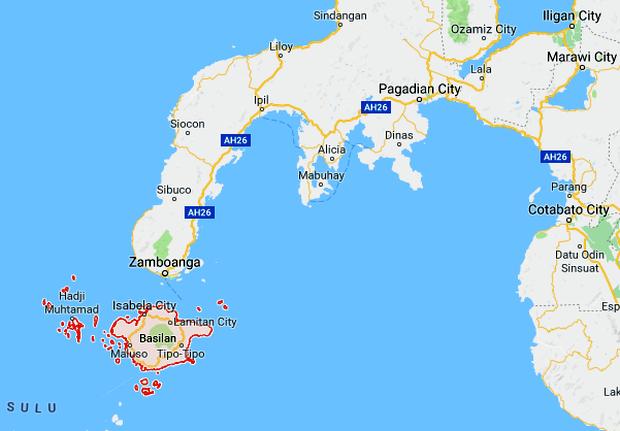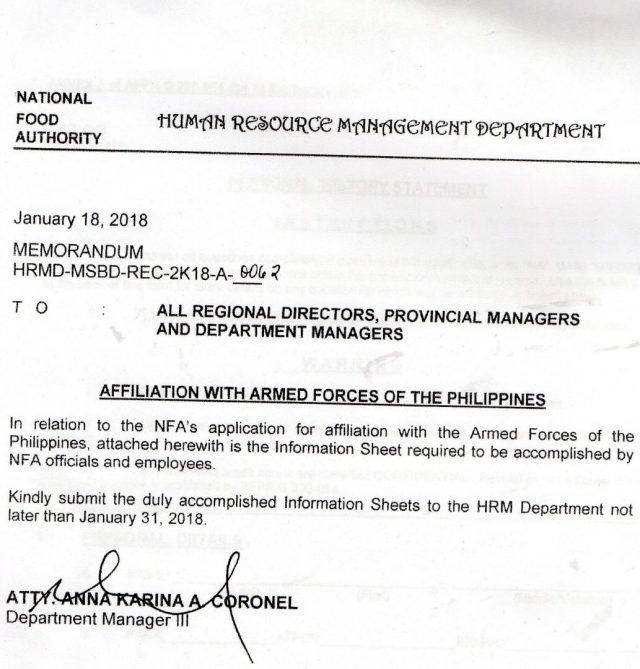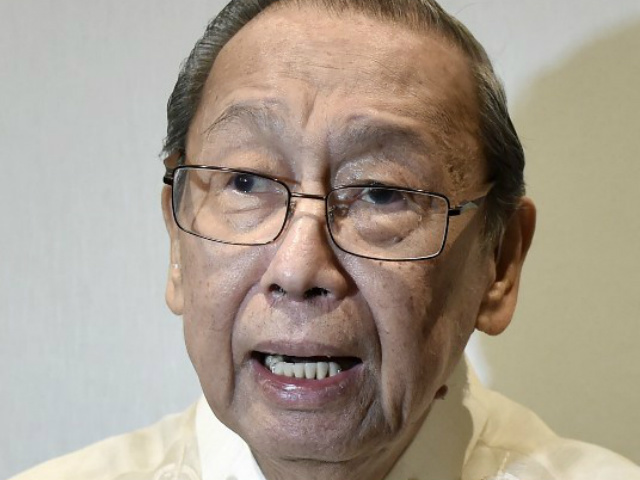“Should the trend continue, the AFP is confident that it could hit its target,” AFP spokesman Col. Edgard Arevalo said yesterday. Noel Celis/AFP
The Armed Forces of the Philippines (AFP) is optimistic that the country’s insurgency problem will be resolved soon, citing the diminishing strength – if not the imminent defeat – of the New People’s Army (NPA).
The AFP issued the statement following the surrender of 326 NPA guerrillas last month.
“Should the trend continue, the AFP is confident that it could hit its target,” AFP spokesman Col. Edgard Arevalo said yesterday.
He said the higher number of surrenders in January alone indicated what to expect in the coming months, although the military is careful not to claim that victory is at hand when it comes to neutralizing the NPA.
While many are turning themselves in, Arevalo said the AFP is doing its best to prevent the communist group from recruiting new members.
“We’re going to deny them the opportunity to recruit. Not only will our combat and focused military operations continue, but also our programs to inform the would-be recruits of what awaits them through the help of their local government and communities if they change their ways,” he said.

The unprecedented number of NPA surrenderees can be attributed to President Duterte’s call for the rebels to lay down their arms, AFP public affairs office chief Lt. Col. Emmanuel Garcia said.
He said among those who recently surrendered to the military was 35-year-old Gemma Quiroga of Davao Oriental, who turned herself in to the Army’s 28th Infantry Battalion on Jan. 28.
Quiroga served as a doctor for the rebels and chairperson of Anakpawis, a known leftist organization in Mati City.
Garcia said the AFP is hoping that the influx of surrenderees would encourage other rebels to also lay down their arms, abandon extremist violence and go for peace.
The AFP commended its various units on the ground for effectively using military pressure against the NPA and for the humane treatment of those who surrender.
The Armed Forces of the Philippines (AFP) is optimistic that the country’s insurgency problem will be resolved soon, citing the diminishing strength – if not the imminent defeat – of the New People’s Army (NPA).
The AFP issued the statement following the surrender of 326 NPA guerrillas last month.
“Should the trend continue, the AFP is confident that it could hit its target,” AFP spokesman Col. Edgard Arevalo said yesterday.
He said the higher number of surrenders in January alone indicated what to expect in the coming months, although the military is careful not to claim that victory is at hand when it comes to neutralizing the NPA.
While many are turning themselves in, Arevalo said the AFP is doing its best to prevent the communist group from recruiting new members.
“We’re going to deny them the opportunity to recruit. Not only will our combat and focused military operations continue, but also our programs to inform the would-be recruits of what awaits them through the help of their local government and communities if they change their ways,” he said.
The unprecedented number of NPA surrenderees can be attributed to President Duterte’s call for the rebels to lay down their arms, AFP public affairs office chief Lt. Col. Emmanuel Garcia said.
He said among those who recently surrendered to the military was 35-year-old Gemma Quiroga of Davao Oriental, who turned herself in to the Army’s 28th Infantry Battalion on Jan. 28.
Quiroga served as a doctor for the rebels and chairperson of Anakpawis, a known leftist organization in Mati City.
Garcia said the AFP is hoping that the influx of surrenderees would encourage other rebels to also lay down their arms, abandon extremist violence and go for peace.
The AFP commended its various units on the ground for effectively using military pressure against the NPA and for the humane treatment of those who surrender.







